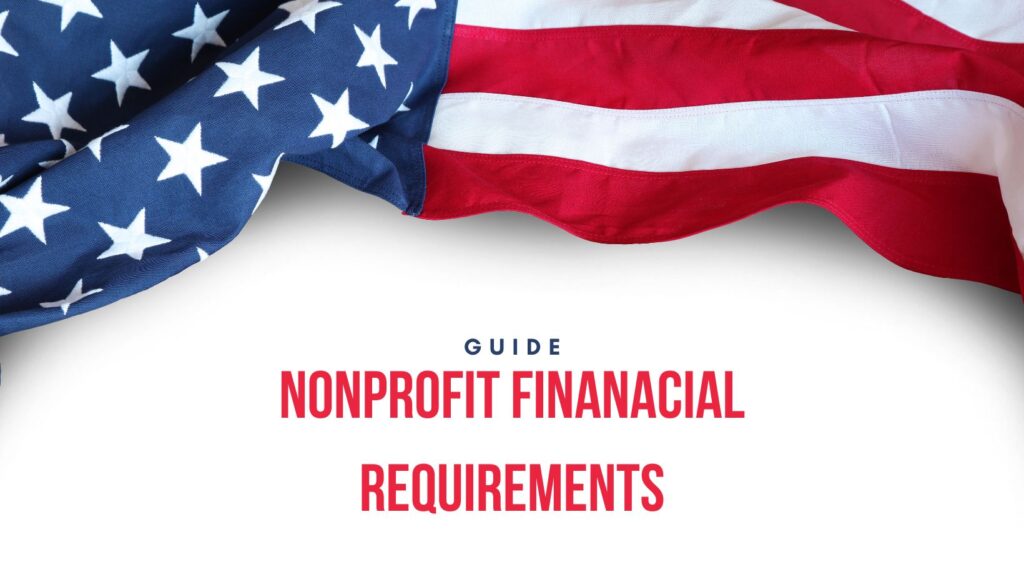Guide to USA Nonprofit Audit Requirements
Nonprofits play a big role in our society, providing essential services and support in various areas. Nonprofits need to be transparent and accountable with their finances. One way to achieve this is by following state audit requirements. These requirements can be different depending on the state, and they often depend on how much money the nonprofit makes or whether they receive public funds. Knowing these requirements is crucial for any nonprofit to stay legal and trusted by the public.

Understanding Audit Requirements
Revenue Thresholds and Audits: One of the main factors determining if a nonprofit needs an audit, is its revenue. States usually set specific revenue limits that, when exceeded, require an audit. For example, in Massachusetts, nonprofits with gross revenues of $200,000 or more may be required to file audited financial statements. These limits ensure that larger organizations with more complex finances are carefully reviewed.
Public Funding and Its Impact: Receiving public funding can also trigger audit requirements. States often require nonprofits that get a certain amount of government grants or public funds to conduct an audit, no matter their total revenue. For example, Georgia nonprofits with $100,000 or greater state funds expended are required to submit audited financial statements to the DOAA.
Filing Requirements and State Agencies: Many states require audited financial statements to be submitted with annual filings to state agencies. This is part of regulatory oversight to ensure nonprofits are transparent and compliant with state laws. For example, in Michigan, nonprofits must submit their audited financial statements with their annual report if their annual contributions exceed $500,000.
Frequency of Audits: While annual audits are common in many states, some have different schedules or conditions for audits. For example, some states might require audits every two years or only when a nonprofit undergoes significant changes, like a merger.
Special Cases
Review vs. Audit: Not all financial checks are full audits. Some states allow for a financial review by a Certified Public Accountant (CPA) if the nonprofit’s revenue is below the audit threshold but above a certain minimum level. A review is less detailed than an audit but still provides assurance about the nonprofit’s financial statements. For example, in Illinois, nonprofits with revenue between $300,000 and $500,000 may submit a CPA review instead of a full audit.
Exemptions and Special Cases: Some nonprofits have exemptions or special considerations. Religious organizations, for instance, might be exempt from state audit requirements due to the separation of church and state. Similarly, small community-based organizations might follow different rules. Understanding these details is important for compliance. In Texas, for instance, religious organizations are not required to file annual financial reports and are not subject to the same audit requirements as other nonprofits.
Nonprofit Audit Compliance
Following state audit requirements is not just about obeying the law; it’s also crucial for maintaining public trust. Here’s why compliance matters:
I. Accountability and Transparency: Audits provide an objective assessment of a nonprofit’s financial health and practices. This transparency helps build trust with donors and the public. When stakeholders see that a nonprofit is regularly audited, they can have greater confidence in the organization’s integrity and management of funds.
II. Legal Standing: Nonprofits must comply with state regulations to maintain their legal status. Not conducting required audits can result in penalties, fines, or even losing nonprofit status.
III. Enhancing Fundraising Efforts: Many donors and grantmakers require audited financial statements as part of their due diligence process. Having an audit can enhance a nonprofit’s ability to secure funding. Foundations and government agencies often view audited financials as a mark of reliability and good governance.
IV. Improving Financial Management: The audit process can help nonprofits improve their financial management practices. Auditors often provide recommendations for strengthening internal controls and financial procedures. This can lead to more effective and efficient operations, ultimately benefiting the nonprofit’s mission and sustainability.
V. Meeting Public Expectations: Meeting audit requirements shows a commitment to these standards and helps maintain the public’s trust and support.
Detailed State-Specific Requirements
Let’s look at specific state requirements to get a clearer picture:
Maryland: Nonprofits with gross support and revenue exceeding $7500,000 must file audited financial statements with their annual reports. This ensures financial transparency among larger charitable organizations.
Florida: Florida has specific requirements based on revenue. Nonprofits with annual revenue of $1 million or more must undergo a financial audit. Those with revenue between $500,000 and $ 1 million must have their financial statements reviewed or audited by an independent CPA. On the other hand, those with revenue below $500,00 may submit CPA financial statements is optional.
Pennsylvania: Nonprofits receiving $100,000 or more in annual contributions are required to undergo an audit, review or compilation. This emphasizes the importance of accountability when handling public money.
Wisconsin: Nonprofits with annual revenue between $300,000 and $500,000 must complete financial review instead of a full audit. This provides a middle ground for organizations that are not quite large enough to need a full audit but still need to show financial responsibility.
Practical Steps for Compliance
Nonprofits can take several practical steps to ensure they meet state audit requirements:

- Understand Your State’s Requirements: Familiarize yourself with the specific audit thresholds and filing requirements in your state. This information is often available on state government websites or through nonprofit associations.
- Maintain Accurate Financial Records: Ensure that your financial records are accurate, complete, and up-to-date. This will make the audit process smoother and more efficient.
- Engage a CPA: If your nonprofit meets the audit threshold, engage a qualified CPA with experience in nonprofit auditing. Their expertise will be invaluable in navigating the audit process.
- Prepare for the Audit: Prepare for the audit by gathering all necessary financial documents and records. This includes financial statements, bank statements, grant agreements, and any other relevant documentation.
- Implement Recommendations: After the audit, review the auditor’s recommendations and implement any suggested improvements to your financial practices and internal controls.
Disclosure
Please note that state audit requirements and regulations for nonprofits are subject to change. The information provided in this article is accurate as of the time of writing. Nonprofits should regularly verify and cross-check state requirements to ensure ongoing compliance.
Conclusion
Following state nonprofit audit requirements is essential for maintaining legal standing, securing funding, and building public trust. By understanding and adhering to these requirements, nonprofits can operate with the highest levels of transparency and accountability. This supports their mission and enhances their impact in the communities they serve. For more detailed information, nonprofits can refer to state-specific guidelines and consult with financial professionals to navigate the complexities of audit requirements.
For detailed information on specific state requirements, you can refer to the State Law Nonprofit Audit Requirements Guide.